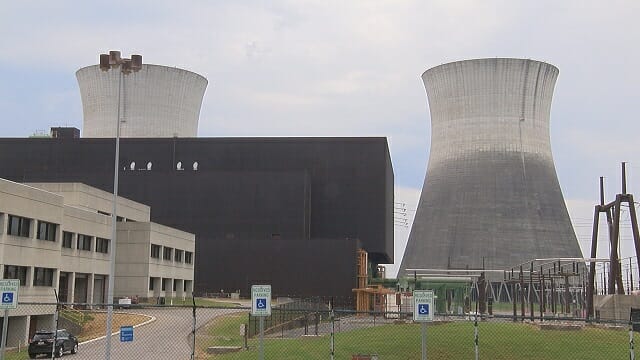The nuclear power plant will have a total capacity of about 2,400 MW and would be fully ready in the summer of 2020
The new nuclear power plant that is under construction in Belarus, which seeks to generate more electricity, could bring new projects such as the expansion of Bitcoin mining, according to the President of that country, Alexander Lukashenko.
During a meeting with representatives of the digital and technological sector of Belarus, President Lukashenko announced his plans to develop cryptographic mining farms, which will receive electricity from the new nuclear plant that is being built.
In this way, Minsk, the capital of the country, will have more low-cost energy to mine Bitcoin and open new cryptocurrencies farms. With this announcement, Belarus demonstrated that it maintains its intentions to develop digital economy and its policy of “friendly crypto-mining”, in order to attract more investors.
Mining and Bitcoins Sails
President Alexander Lukashenko reaffirmed his intention to promote the country’s digital sector. The President presented this announcement to representatives of the technology industry at High Technologies Park (HTP), an economic zone of Belarus that has a special tax and legal regime to contribute to the favorable development of the national technology industry.
“We will launch the atomic station and there will be surplus energy. I left a little space there. We are going to build mining farms and we are going to be mining and selling those bitcoins”, he said.
The head of State also spoke about the new nuclear power plant that the country is building in the district of Astravyets, in the region of Grodno, border with Lithuania. This new atomic power plant will have two nuclear reactors. As it is expected, the first unit would start operating at the end of this year and the second one would start generating electricity in the summer of 2020. The nuclear power plant will have a total capacity of 2,400 MW.
The Belarusian president promised the High Tech Park (HTP) community to maintain its support to make the so-called special economic zone possible. “We will move in the same direction. They wanted cryptocurrencies, crypto-exchanges, mining farms and together we will continue on this path”, he said.
During his conversation with the Belarusian community of young specialists in information technology, Lukashenko reiterated his desire to maintain this course. “If you need anything, let me know and we will solve any problem”.
Belarus, an old Soviet republic and now an allied of Russia, legalized the activities related to cryptocurrencies last year during the HTP. With the aim to facilitate the application of the digital economy, the Minsk’s government adopted new cryptographic accounting standards and extended the regulatory framework.
This back to cryptoactives is contemplated in the special presidential decree number 8, called “Development of the Digital Economy”, which entered into force on March 28th, 2018. The decree includes a holiday and incentives for cryptography companies until 2023.
The “friendly cryptography” policy is part of the country’s effort to become a global center of Information Technology. The objective of these regulations is to attract companies and entrepreneurs from all over the world with a friendly digital economic environment.
Finally, the Belarusian leader invited interested parties to send their proposals and recommendations to promote the project that his government is conducting.
By Maria Rodriguez











